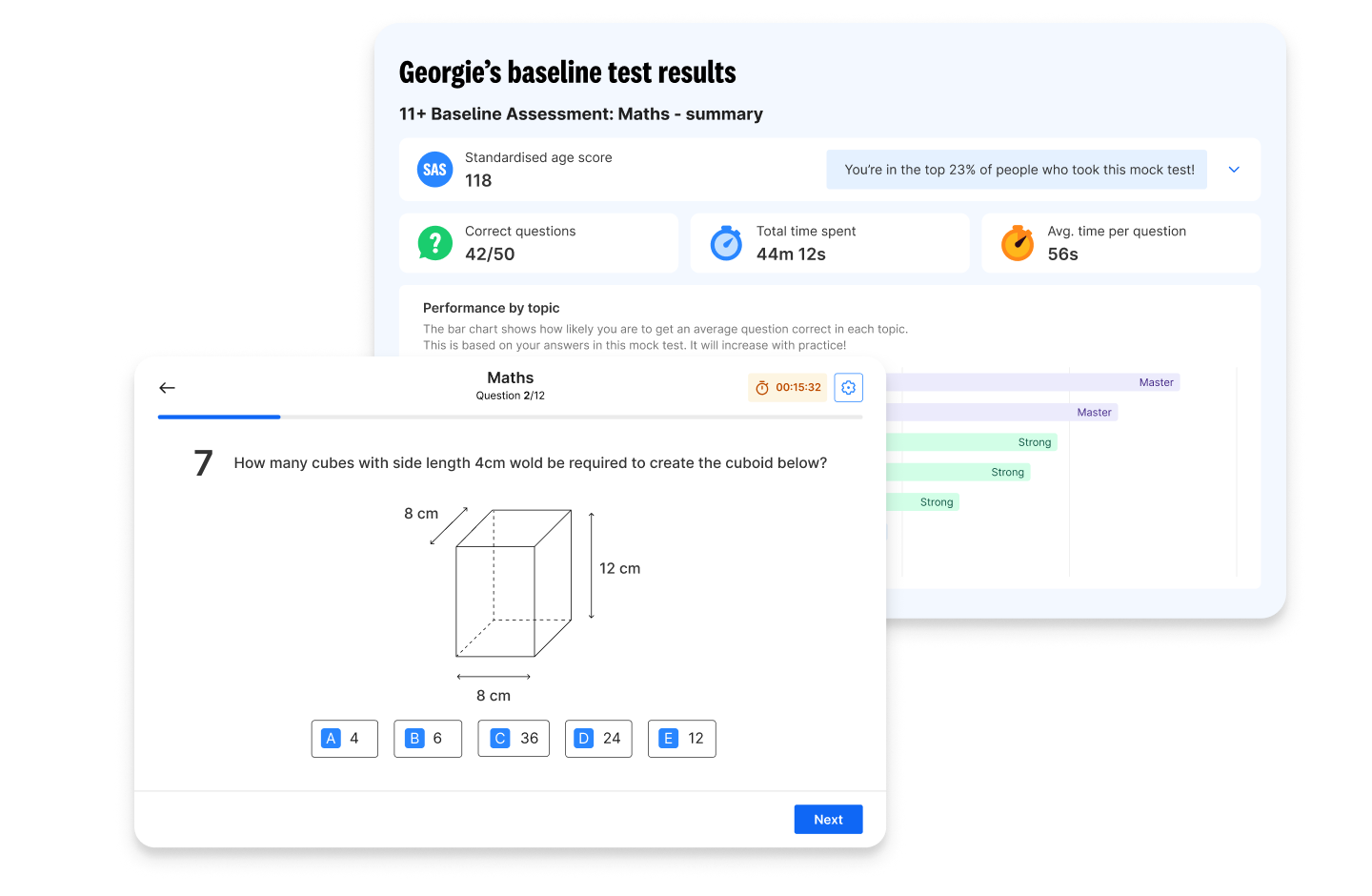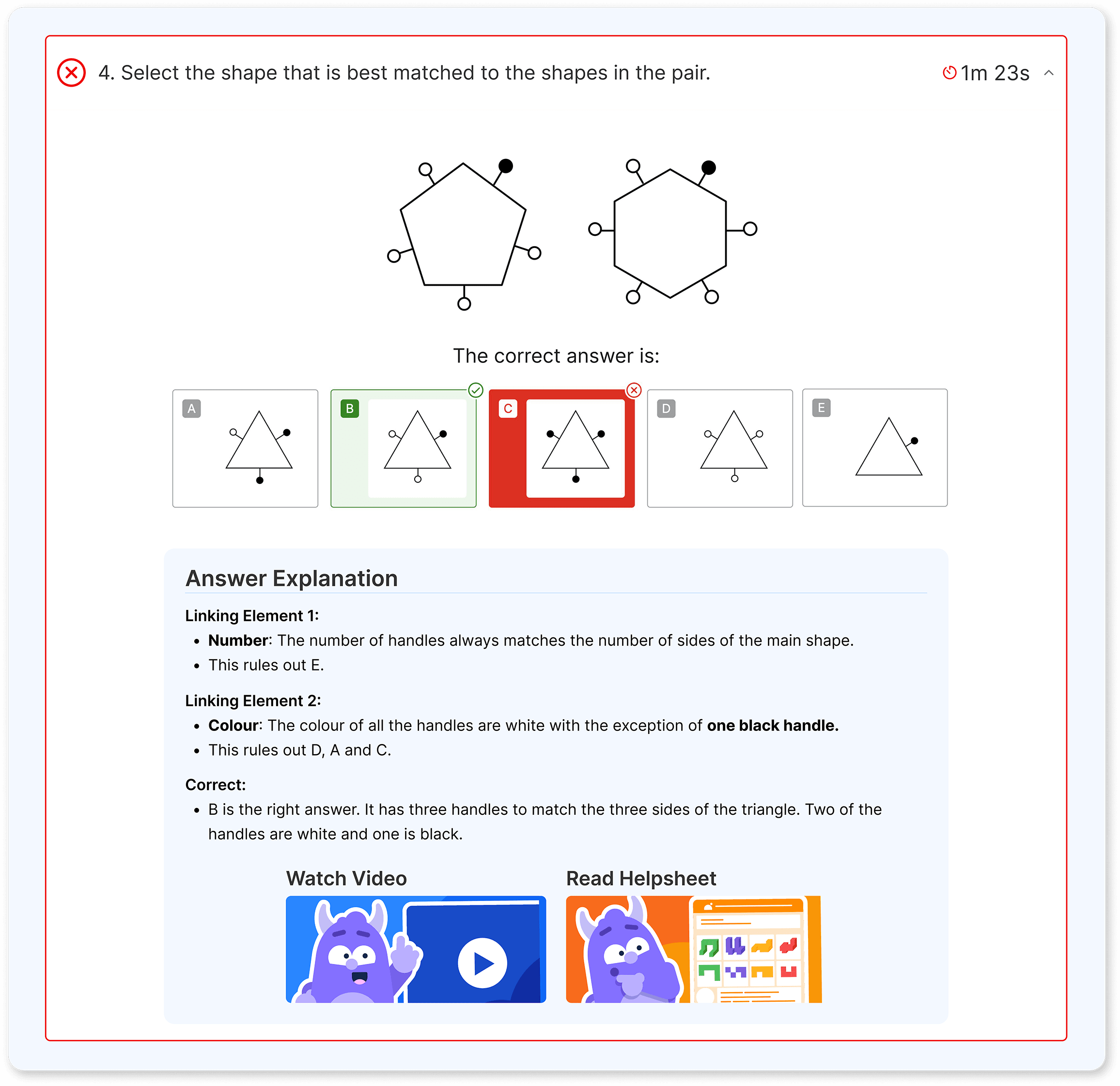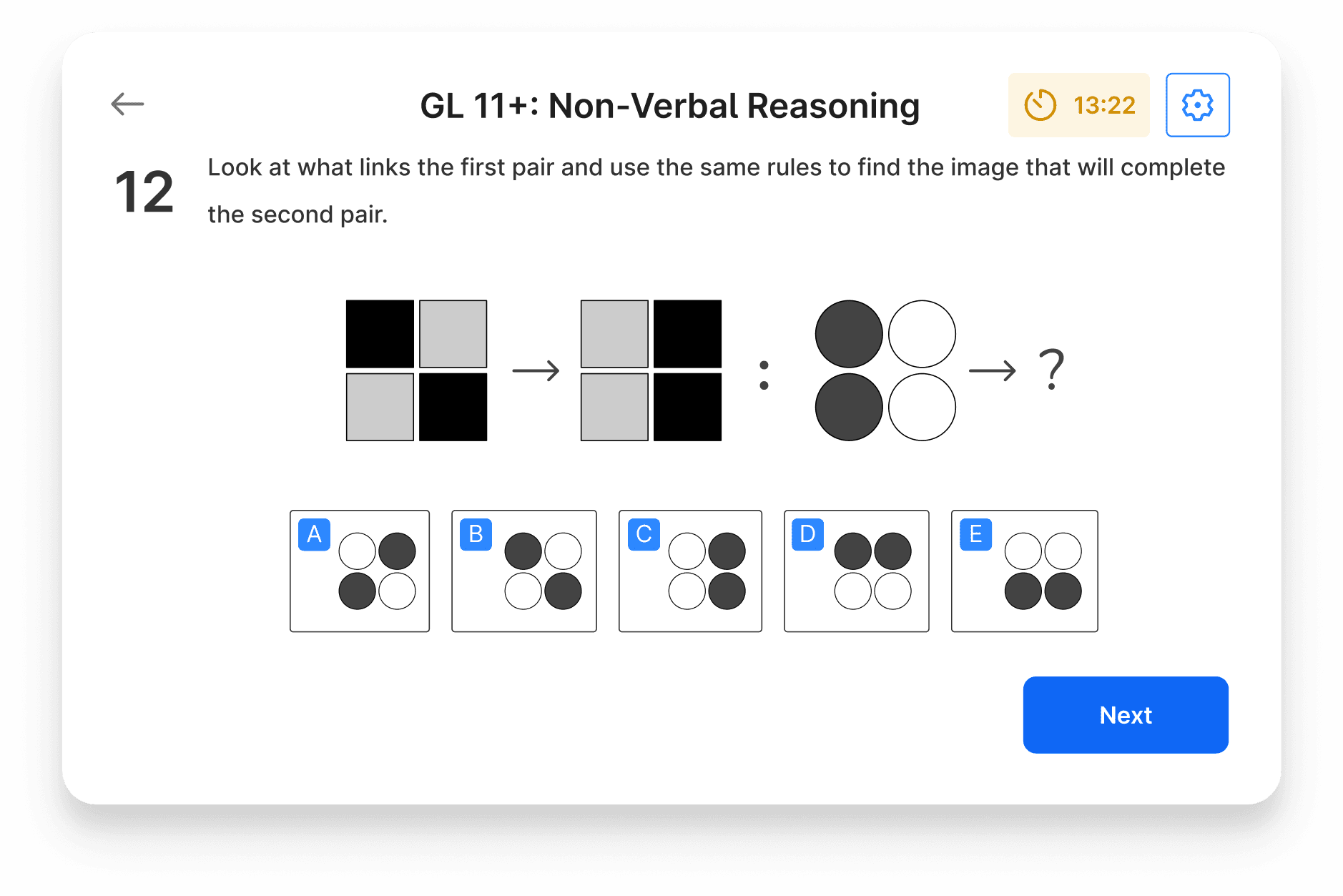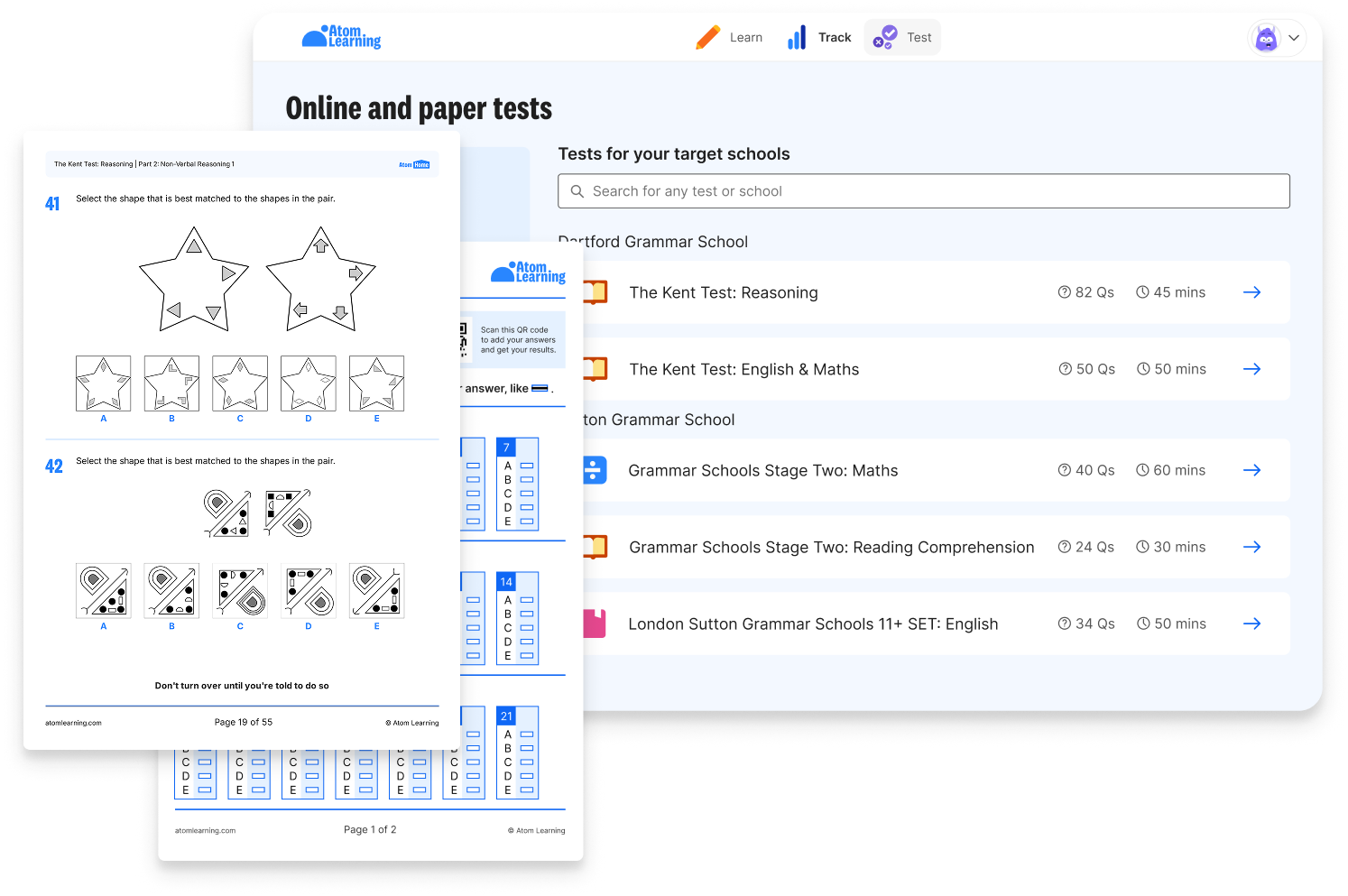Guide to the Wandsworth Year 6 Test
.avif)
Are you considering a selective state school place in Wandsworth, London for your child? We’ve collated everything you need to know about admissions in 2025–2026. Keep reading to:
- Find out more about state schools with selective places in Wandsworth
- Learn about the Wandsworth Year 6 test
- Discover which subjects your child will be tested on
Which schools use the Wandsworth Year 6 test?
Four state schools in the London Borough of Wandsworth use the Year 6 test:
- Ashcroft Technology Academy (boys and girls), Putney
- Burntwood School (girls only), Earlsfield
- Chestnut Grove Academy (boys and girls), Balham
- Graveney School (boys and girls), Tooting
All children applying to Ashcroft Technology Academy and Chestnut Grove Academy must take the Wandsworth Year 6 test. Only children applying for a selective place at Burntwood School or Graveney School need to take the test.
Dates for your diary
The 2025 exam dates have been published, find all the key dates for your diary below:
- Tuesday 20th May 2025: registration opens for the Wandsworth Year 6 test
- Thursday 4th September 2025: registration closes for the Wandsworth Year 6 test
- Thursday 18th September 2025: invitations are emailed to parents
- Thursday 25th September 2025: test date 1
- Friday 26th September 2025: test date 2
- Saturday 27th September 2025: test date 3
- Monday 29th September 2025: test date 4
- Friday 24th October 2025: parents receive test results on or before this date
- Friday 31st October 2025: secondary school applications close at 5pm
- Monday 3rd March 2026: secondary school national offers day
Dates can vary, so always check with your target schools!
What is the Wandsworth Year 6 test?
Some secondary schools in Wandsworth use partial-selection or fair banding to fill places. These schools use the Year 6 test to get an idea of a child's academic ability. The results provide schools with the data they need to make offers of places.
Ashcroft Technology Academy and Chestnut Grove Academy use banding in their admissions processes. Children are placed into one of five ability bands, with an equal number of places offered within each band.
Burntwood School and Graveney School use partial-selection. 25% of places at each of these schools are reserved for children with the highest Year 6 test scores.
If your child has an Education, Health and Care Plan (EHCP), they do not have to take the Year 6 test.
Special aptitude places
Some secondary schools in Wandsworth also offer specialist aptitude places. These are places reserved for children who show aptitude in a particular subject.
- Ashcroft Technology Academy: up to 24 specialist places in technology
- Chestnut Grove Academy: up to 30 specialist places in art and design, and up to 30 specialist places in modern foreign languages
- Saint Cecilia's Church of England School: 9 foundation places and 9 specialist music places If you would like to apply for a specialist place, your child will have to take the school's aptitude test. For Ashcroft Technology Academy and Chestnut Grove Academy, this is in addition to the Wandsworth Year 6 Test.
What's on the Wandsworth Year 6 test?
The Wandsworth Test is created by GL Assessment. This is one of the main providers of 11 plus exams in England.
GL Assessment tests are multiple-choice. Your child will have a question booklet and a pre-printed answer sheet, which is marked by computer. They will need to mark their answers by putting a pencil mark by the side of the correct answer. Your child will not need to do any writing.
There are two parts to the test: non-verbal reasoning and verbal reasoning. Each part has a short practice session at the beginning. Your child will have a break between the two parts.
Part 1: non-verbal reasoning
Part 1 takes 55 minutes in total, including guidance and practice questions at the beginning.
This part assesses non-verbal reasoning.
Your child will be tested on their ability to solve problems using abstract figures, such as shapes and diagrams. They will need to work out the similarities and sequences of shapes and codes.
Part 2: verbal reasoning
Part 2 takes 50 minutes in total, including guidance and practice questions at the start.
This part tests verbal reasoning. Questions assess your child's ability to reason and solve problems with written information. This involves word games – such as matching words with similar meanings (synonyms), or using the letters from one word to create a new word.
Is your child ready for the 11+?
See where they stand in minutes. Atom’s free 11+ baseline tests give you an instant breakdown of their strengths and gaps. Know exactly what to focus on next and start preparing with direction, not uncertainty.

How is the Wandsworth Year 6 test scored?
The test papers are marked by GL Assessment to ensure that they are marked fairly and consistently.
Your child's answer sheets are marked using OMR (Optical Mark Recognition). A computer will identify the marks your child has made next to each question and allocate a point for each correct answer. These marks are added together to form a raw score.
The raw score is then age-standardised. This is a statistical process that takes into account your child's age in years and months at the time of taking the test. Age-standardisation ensures that children born later in the school year aren't disadvantaged.
Your child's standardised score is their final score. This is the score schools use to allocate places.
Your child's test scores are sent to the schools you have applied to and to Wandsworth Council. The Council will send you an email with your child's scores by mid-October 2025. You can use the results to decide which schools to list on your secondary school common application form.
What's the pass mark for the Wandsworth Year 6 test?
Each secondary school in Wandsworth has its own admissions criteria. Schools use the test scores differently when allocating places.
The minimum score for the test is 69 and the maximum score is 141. A score of 100 represents an average score for the age group.
The following historical data indicates the minimum scores for which children were offered places under the school’s criteria on National Offers Day (1st March) in previous years.
Ashcroft Technology Academy
Children are placed into ability bands based on their non-verbal reasoning score. In 2023, the bands were:
- Band A: 112 and above
- Band B: 104–111
- Band C: 97–103
- Band D: 88–96
- Band E: 87 and below
Burntwood School
25% of places in Year 7 were reserved for children who achieved these minimum scores in previous years (combined scores from both papers):
- 2023: 214
- 2022: 212
- 2021: 224
- 2020: 214
- 2019: 208
Chestnut Grove Academy
Children are placed into ability bands based on the average of their non-verbal reasoning and verbal reasoning score. In 2023, the bands were:
- Band A: 114 and above
- Band B: 105.5–113.5
- Band C: 98–105
- Band D: 89.5–97.5
- Band E: 91.5 and below
Graveney School
25% of places in Year 7 were reserved for children who achieved these minimum scores in previous years (combined scores from both papers):
- 2023: 254
- 2022: 254
- 2021: 256
- 2020: 253
- 2019: 255
How to apply for a selective place in Wandsworth
1. Register for the Wandsworth Year 6 test
All children applying for Ashcroft Technology Academy, Burntwood School, Chestnut Grove Academy or Graveney School must be registered to be invited to take the test.
The registration form for the Wandsworth Test is available on the Wandsworth local authority website. Registration closes September 2025.
Wandsworth Council will send you an invitation, by email, in early September 2025. This will inform you where and when your child will take the test.
The test will take place over three days in September. Your child will be invited to take the test on one of these days. The test will be held at a local secondary school. Where possible, children who go to the same primary school will take the test on the same day and at the same school.
2. Apply for school places
Your child’s test results will be sent to you by October 2025.
You can use these results to decide which schools to name on your secondary school common application form. You should only name schools for which your child has met the eligible score. Before listing a school on your form, check its admissions policy and make sure your child is eligible.
The application form must be submitted to your home local council by 31st October 2025.
3. National school offer day
In March 2026, you will find out which school your child has been allocated a place at. They will be allocated a place at your highest-preferred school for which they meet the entry criteria and which has places available.
If no places are available at your preferred schools, they will be offered a place at another school in your area. You can appeal via an independent panel. Information about how to appeal will be sent to you by your local authority along with your school offer on National Offers Day.
How can I help my child prepare for the Wandsworth Year 6 test?
The Year 6 test assesses verbal reasoning and non-verbal reasoning. These subjects are not taught at primary schools, so your child might be unfamiliar with these types of questions. Here are our top tips to help your child feel confident for exam day.
Bitesize learning
It’s important to build a good knowledge base before the exam. Using a ‘little and often’ approach when learning is key – our brains encode new information more effectively when dealing with smaller ‘chunks’ of information. For children aged 10–11, child psychologists recommend regular study sessions of 20–30 minutes.
Atom Home makes learning verbal and non-verbal reasoning a more enjoyable process for your child. They'll explore exciting worlds full of interactive questions, earning coins to spend in the Atom shop. Atom adapts to your child, showing them questions at just the right level of difficulty to keep them motivated. Answer explanations, videos and helpsheets support them to learn independently.

Pictured: An example non-verbal reasoning question on Atom Home, with a full answer explanation and links to watch a video and read a helpsheet to support further understanding.
Read widely
Verbal reasoning tests your child’s ability to analyse and interpret written information. Regular reading is a great way to help your child build these skills.
Encourage them to read books from different genres and by a diverse range of authors. Increasing the variety of your child’s reading will help them understand different styles, tones and purposes. Meanwhile, reading a little every day will help widen their vocabulary, sharpen their analytical thinking, and enhance their imagination.
Play puzzles and games
Both verbal and non-verbal reasoning test your child’s ability to spot patterns and solve problems using logic. Puzzles such as crosswords and sudoku, and even toys such as Lego, can help your child develop their attention to detail, sustained thinking and visualisation.
Many board games have great educational value, so why not hold a regular family game night? Get inspired with some of our favourite board games.
Refine exam technique
When your child feels confident with different types of reasoning questions, they’ll be ready to put their knowledge to the test.
Practice tests can help your child develop problem-solving skills and build confidence working under test conditions. They’re also a great way to consolidate learning and highlight knowledge gaps for further improvement.
With Atom Home, you'll unlock online mock tests and printable practice papers for GL Assessment reasoning tests. Enjoy automatic marking and progress tracking with the online tests, and help your child get familiar with the real exam experience with printable practice papers.

Pictured: An example GL Assessment 11+ non-verbal reasoning practice test question on Atom Home.
Celebrate progress
Setting regular, achievable goals and celebrating your child’s progress – no matter how big or small – will help keep their motivation high.
Make sure to encourage a growth mindset. This means celebrating effort, as well as achievement! When your child makes mistakes or struggles to understand a particular topic, help them understand that they’ll improve through practice. Regular praise will help your child improve their resilience when tackling new and challenging topics.
Take control of your child’s 11+ preparation.

Not sure if your child is on track for the grammar school 11+? You don’t need to guess what to cover or whether they’re ready. Atom shows you exactly what to practise each week and how they’re performing, so you can stay ahead of the process without the stress.
- Follow personalised weekly exam plans that show them what to learn next.
- Download replica 11+ practice papers and upload a photo for instant, stress-free marking.
- Track progress and see how they compare to others applying to the same schools.
Start your free trial and help your child feel fully prepared for the 11+.
